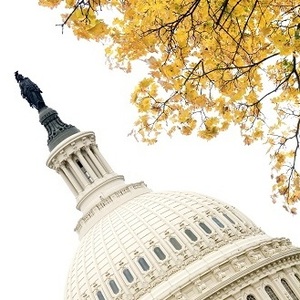NBB to Congress: Stop subsidizing foreign biodiesel production

October 29, 2015
BY Ron Kotrba
As the battle over the biodiesel tax credit structure heats up, the National Biodiesel Board sent a letter to House Ways and Means Committee Chairman Paul Ryan and Ranking Member Sander Levin Oct. 28 urging reinstatement and conversion of the biodiesel tax credit from a blender to a producer incentive, as amended by Sen. Charles Grassley and passed unanimously in July by the senate finance committee. On Oct. 21, the Advanced Biofuels Association joined several petroleum marketing groups in sending their own letter to Ryan and Levin asking them to keep the incentive as a blender credit, advising that restructuring the credit “fails to capture the global market essence of fuels.”
“We represent hundreds of biodiesel producers and related businesses who support this extension and commonsense reform that would focus the incentive on stimulating U.S. production instead of supporting foreign imports, while saving taxpayers $90 million, according to the Congressional Budget Office,” the Oct. 28 letter from NBB stated.
Advertisement
NBB advised Ryan and Levin that the incentive, as currently structured, is increasingly stimulating imports to the U.S. that are undermining U.S. production. “We have seen imports grow steadily in recent years, particularly from countries in South America, Europe and Asia that offer generous incentives or protectionist policies that prevent U.S. companies from competing fairly,” the letter stated. “U.S. tax dollars and energy policy should be aimed at incentivizing domestic production, not foreign production. Subsidizing foreign manufacturing is obviously not the intent of Congress, and we should close this loophole by reforming the credit as a domestic production credit, consistent with other domestic manufacturing and production tax incentives. By sharply narrowing the point of taxation and the number of claimants, it will also streamline administration of the incentive by the IRS to prevent waste, fraud and abuse.”
The organization told Ryan and Levin that the proposed reform achieves these benefits with little or no tradeoff. “The value of the incentive will continue to be shared throughout the distribution chain, culminating in savings to the consumer,” the letter stated. “Producers, blenders, retailers and consumers will all continue to benefit; the point of taxation will simply be moved ‘upstream’ to the producer level where it can be more effectively monitored and tracked.”
NBB urged Ryan and Levin to act quickly on the legislation, noting that more than half of the U.S. biodiesel industry’s productive capacity is idle.
Advertisement
Ben Evans, director of public affairs and federal communications with NBB, said, “We understand that there are groups representing petroleum interests or foreign biofuel importers who are looking after their own interests. But this tax incentive isn’t about encouraging imported biodiesel from Argentina or palm biodiesel from Indonesia. It’s about stimulating U.S. production and jobs. I think you would be hard-pressed to find any member of Congress who would argue against that, which is why this reform unanimously passed the senate finance committee in July.”
Evans added that the more than 3 billion gallons of installed domestic biodiesel and renewable diesel capacity in the U.S. is more than enough to meet demand. “Our producers simply need a level playing field where they’re not competing against subsidized imports,” Evans said.
Related Stories
The U.S. EPA on July 8 hosted virtual public hearing to gather input on the agency’s recently released proposed rule to set 2026 and 2027 RFS RVOs. Members of the biofuel industry were among those to offer testimony during the event.
The USDA’s Risk Management Agency is implementing multiple changes to the Camelina pilot insurance program for the 2026 and succeeding crop years. The changes will expand coverage options and provide greater flexibility for producers.
President Trump on July 4 signed the “One Big Beautiful Bill Act.” The legislation extends and updates the 45Z credit and revives a tax credit benefiting small biodiesel producers but repeals several other bioenergy-related tax incentives.
CARB on June 27 announced amendments to the state’s LCFS regulations will take effect beginning on July 1. The amended regulations were approved by the agency in November 2024, but implementation was delayed due to regulatory clarity issues.
SAF Magazine and the Commercial Aviation Alternative Fuels Initiative announced the preliminary agenda for the North American SAF Conference and Expo, being held Sept. 22-24 at the Minneapolis Convention Center in Minneapolis, Minnesota.
Upcoming Events










